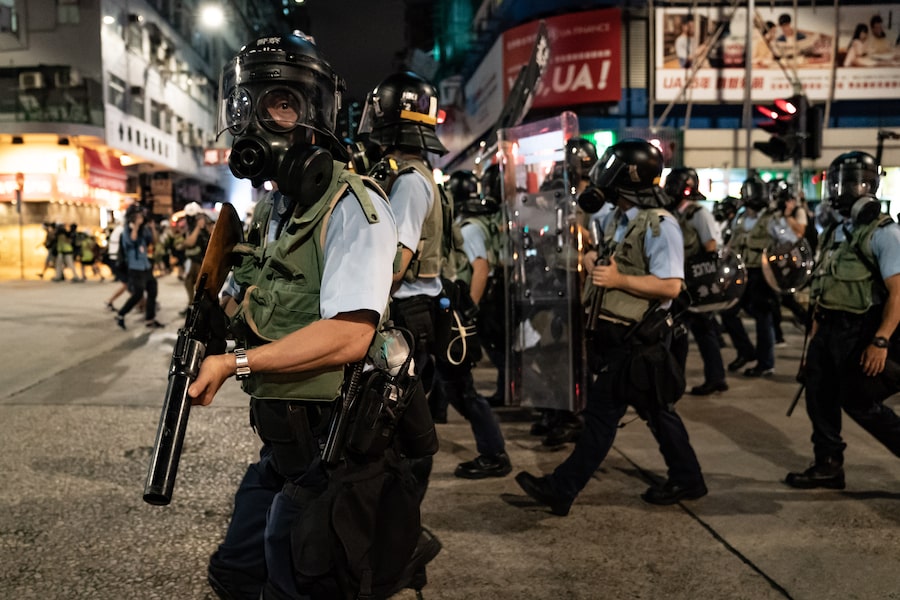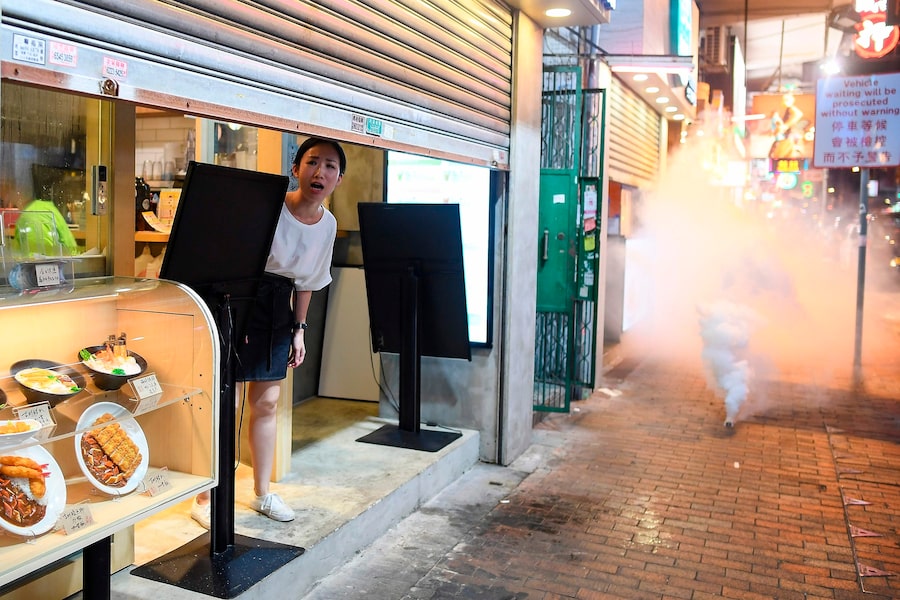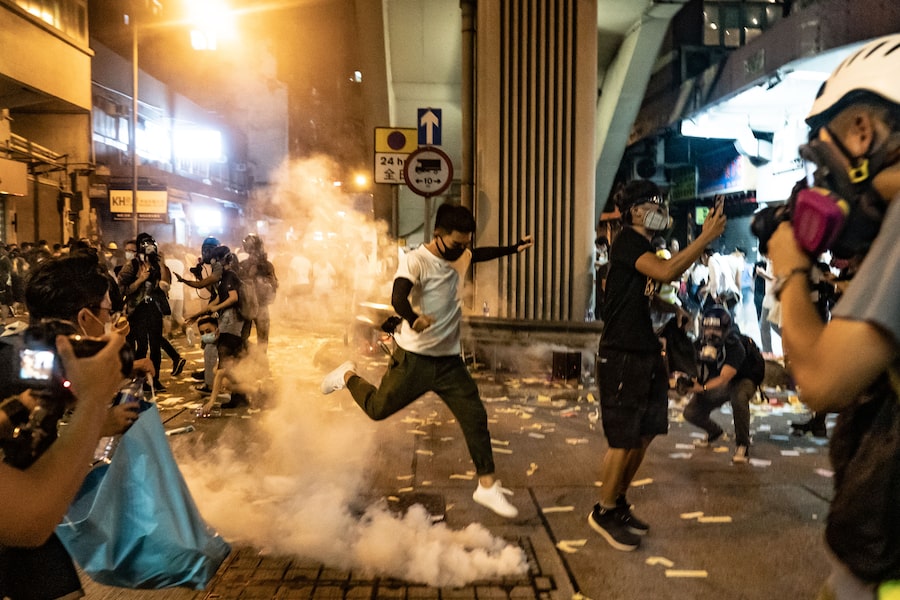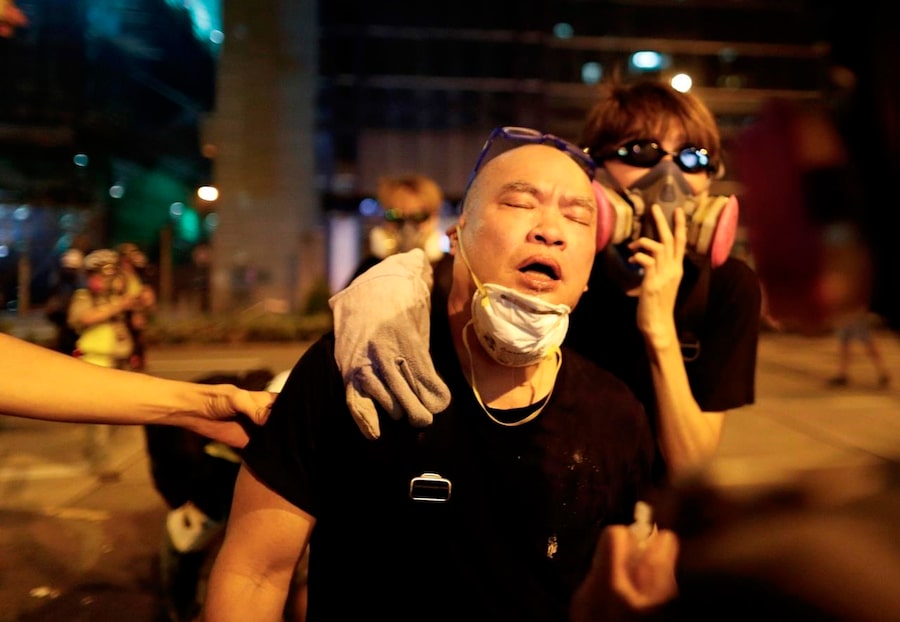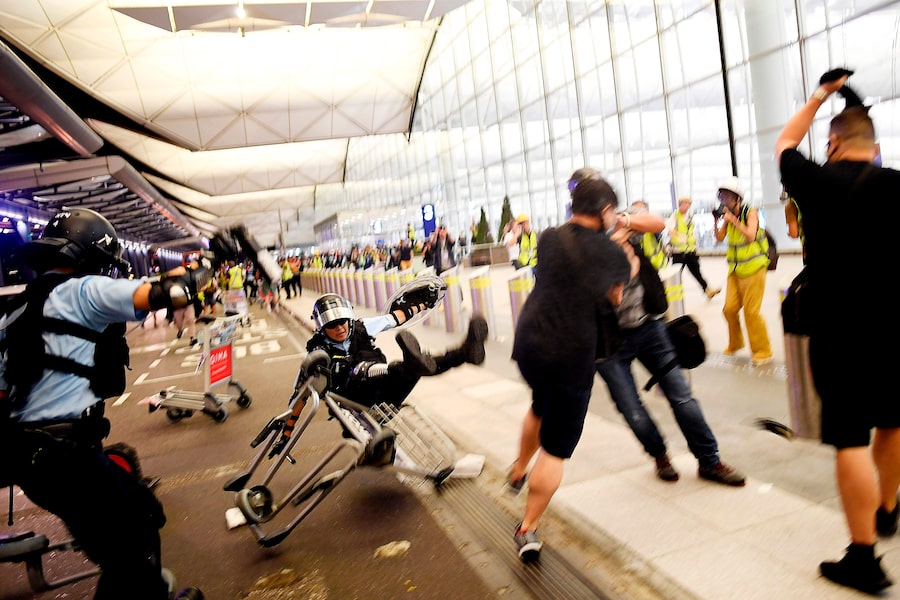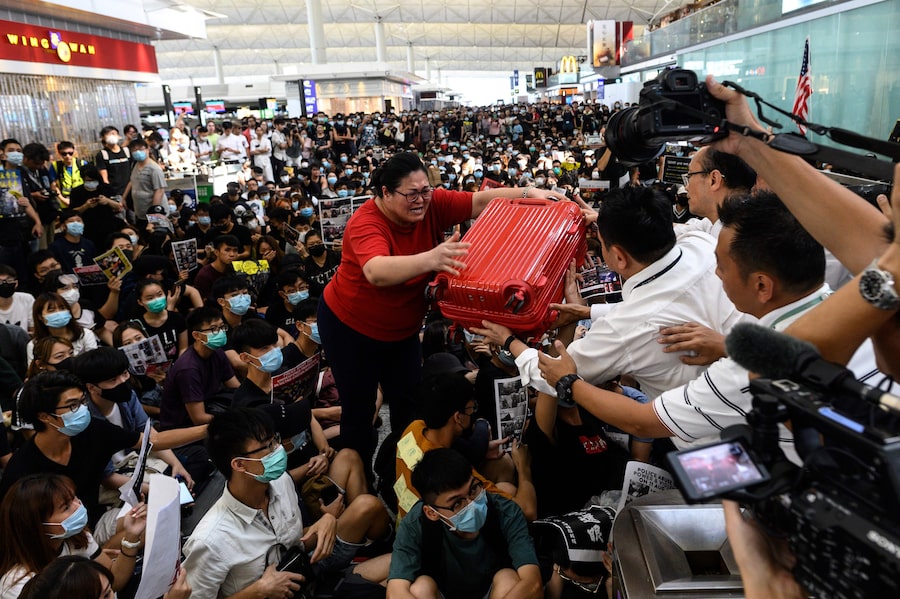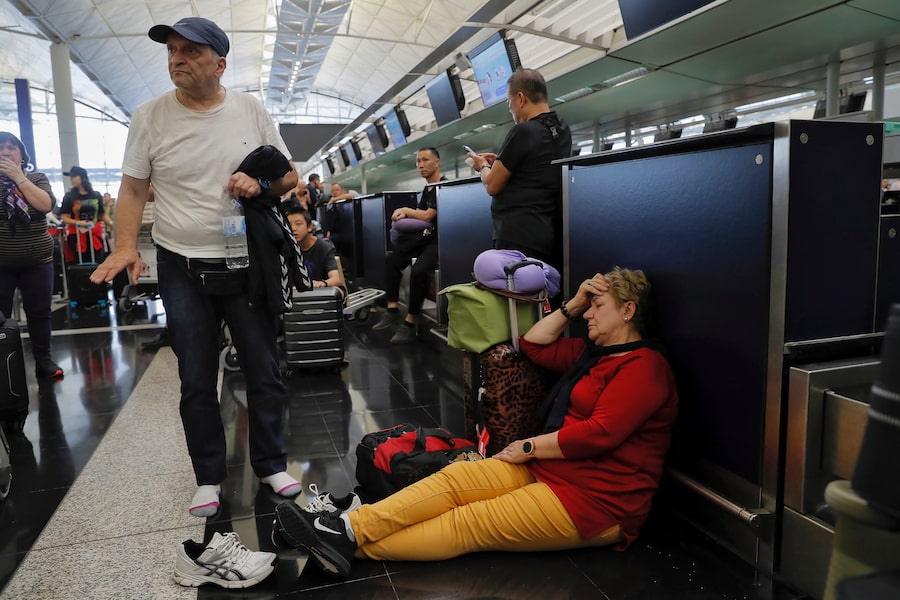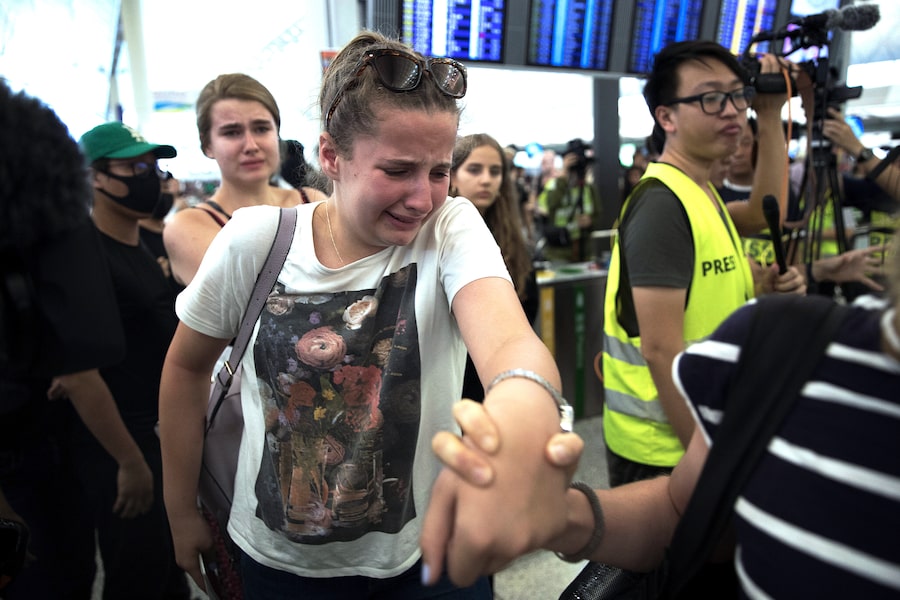Minxin Pei is a professor of government at Claremont McKenna College, the author of China’s Crony Capitalism, and the inaugural Library of Congress Chair in U.S.-China Relations.
The crisis in Hong Kong, which was initially sparked by a now-shelved extradition bill, appears to be careering toward a devastating climax. With the Chinese government’s patience wearing thin, and now using rhetoric reminiscent of what preceded the Tiananmen Square massacre in June, 1989, Hong Kong’s pro-democracy protesters – and, indeed, its democracy – could well be in grave danger.
The People’s Liberation Army (PLA) garrison in Hong Kong is, in the words of its commander Chen Daoxiang, “determined to protect national sovereignty, security, stability and the prosperity of Hong Kong.” To drive the point home, a promotional video showing Chinese military officers in action was released along with the statement.
Riot police clash with pro-democracy protesters at Hong Kong’s airport
Yang Guang, a spokesperson for the Chinese government’s Hong Kong and Macau Affairs Office, has echoed this sentiment, warning the protesters – whom he calls “criminals” – not to “take restraint for weakness,” and reiterated the government’s “firm resolve” to “safeguard the prosperity and stability of Hong Kong." Later, Mr. Yang would add that the demonstrations showed “signs of terrorism.” These statements came just two months after China’s defence minister argued that China’s stability since the Tiananmen crackdown proved that the government had made the “correct” choice.
Yet, despite the warnings and harsh measures by police – who have deployed rubber bullets and tear gas with rising frequency – the protesters have not been deterred. In July, they vandalized the Chinese government’s liaison office in the city centre. Last week, a general strike nearly paralyzed the city, one of Asia’s most important commercial hubs. And hundreds of flights have been cancelled since protesters began occupying Hong Kong’s busy airport. Perhaps counterintuitively, this radicalization has come alongside broadening support for the movement, with members of the middle class – such as lawyers and civil servants – openly joining the cause.
China’s leaders may well be sensing that the best – or even the only – way to restore their authority in Hong Kong is by force. But whether they do so now, or in two months – after the 70th anniversary of the founding of the People’s Republic on Oct. 1 – a Tiananmen-style crackdown is not the answer.
For starters, Hong Kong’s 31,000-strong police force lacks the manpower, and its officers may refuse to use deadly force; after all, there is a big difference between firing rubber bullets at a crowd and potentially murdering civilians. This means that China would have to deploy the local PLA garrison or transfer tens of thousands of paramilitary soldiers (the People’s Armed Police) from the mainland.
Hong Kong’s residents would almost certainly treat Chinese government forces as invaders and mount the fiercest possible resistance. The resulting clashes would mark the official end of the “one country, two systems” arrangement, with China’s government forced to assert direct and full control over Hong Kong’s administration.
With the Hong Kong government’s legitimacy destroyed, the city would become ungovernable. Civil servants would quit their jobs in droves, and the public would continue to resist. Hong Kong’s complex transit, communications and logistics systems would prove easy targets for defiant locals determined to cause major disruptions.
After the Tiananmen crackdown, the Communist Party of China’s ability to reinstitute control rested not only on the presence of tens of thousands of PLA troops, but also on the mobilization of the party’s members. In Hong Kong, where the CPC has only a limited organizational presence – officially, it claims to have none at all – this would be impossible. And because the vast majority of Hong Kong’s residents are employed by private businesses, China cannot control them as easily as mainlanders who depend on the state for their livelihoods.
The economic consequences of such an approach would be dire. Some CPC leaders may think that Hong Kong, which now accounts for only 3 per cent of Chinese GDP, is economically expendable. But the city’s world-class legal and logistical services and sophisticated financial markets, which channel foreign capital into China, mean that its value vastly exceeds its output.
If Chinese soldiers storm the city, an immediate exodus of expats and elites with foreign passports and green cards will follow, and Western businesses will relocate en masse to other Asian commercial hubs. Hong Kong’s economy – a critical bridge between China and the rest of the world – would almost instantly collapse.
When there are no good options, leaders must choose the least bad one. China’s government may loathe the idea of making concessions to the Hong Kong protesters, but considering the catastrophic consequences of a military crackdown, that is what it must do.
Copyright: Project Syndicate, 2019.
Keep your Opinions sharp and informed. Get the Opinion newsletter. Sign up today.
